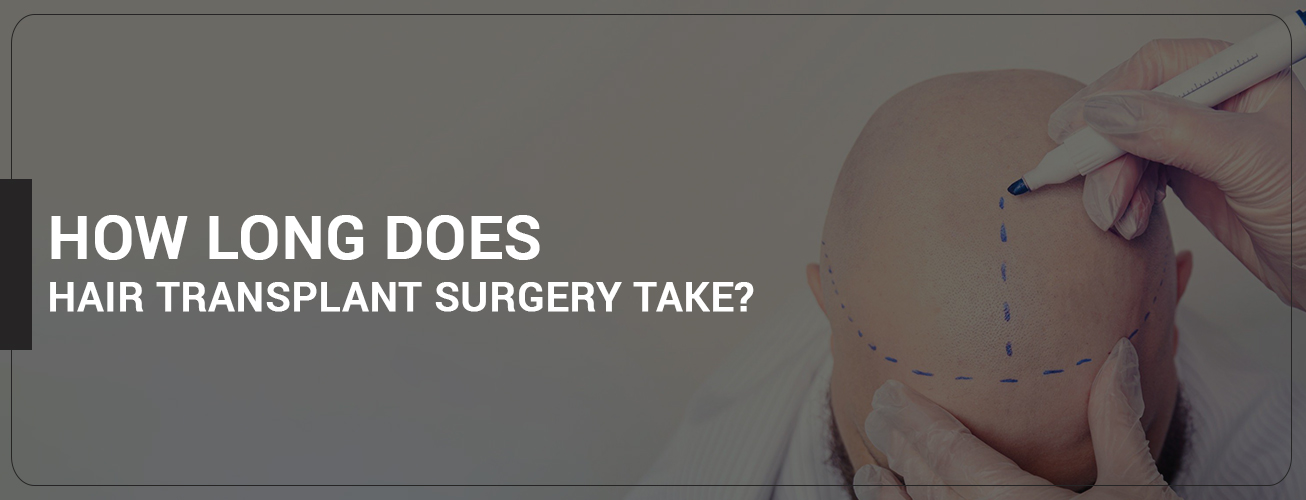
You've probably heard of hair transplant surgery and the wonders it can do for people who are experiencing hair loss.
But if you're considering the procedure, one of the questions that comes to our mind is How long does a hair transplant surgery take?
Hair transplant surgery is a cosmetic procedure that involves removing hair follicles from one area of the body and transplanting them into an area where the hair is thinning or balding.
This procedure can take anywhere from a few hours to a full day, depending on various factors.
In this ultimate guide, we will take a deep dive into everything you need to know about the duration of the hair transplant surgery.
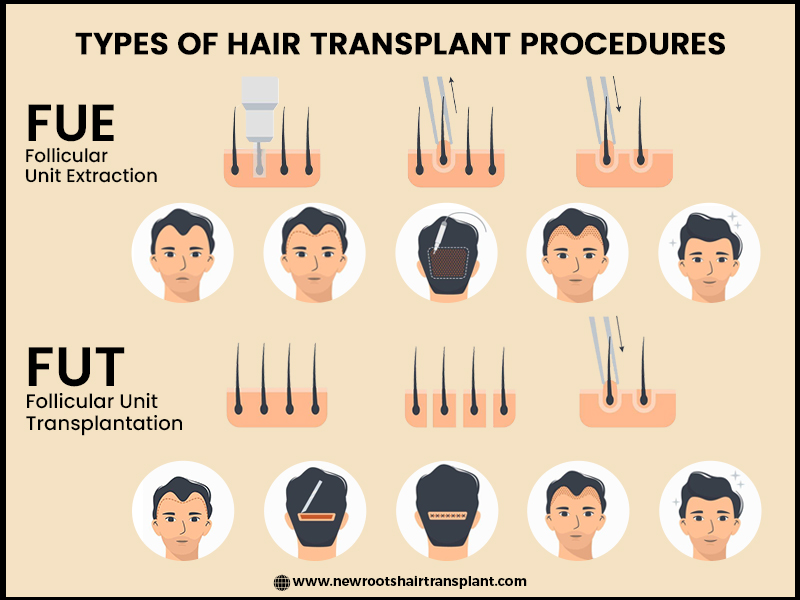
There are two main types of hair transplant procedures:
Read More : HOW EFFECTIVE IS FUE HAIR TRANSPLANT IN INDIA
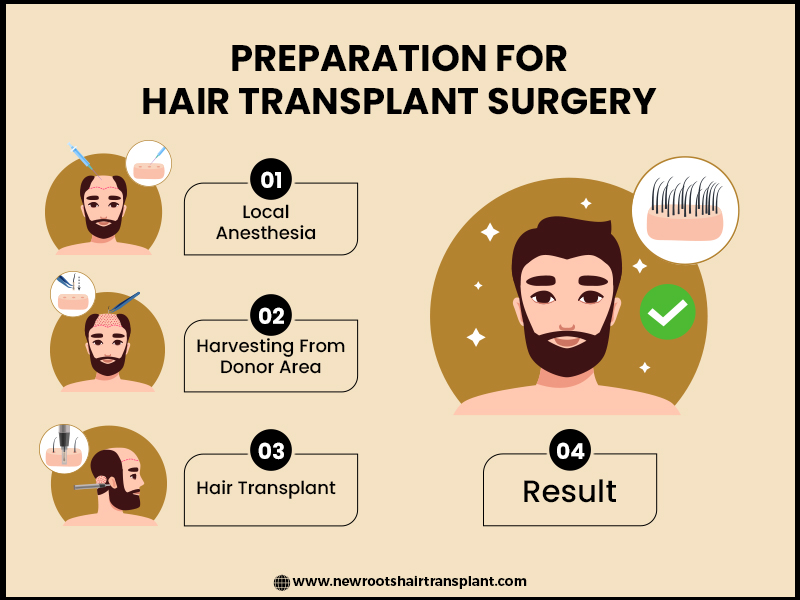
Before undergoing a hair transplant surgery, you will need to meet with a hair transplant specialist to determine if you are a good candidate for the procedure.
You may be asked to stop taking certain medications or supplements that can thin the blood, such as aspirin and ibuprofen, in the weeks leading up to the surgery.
You will also need to avoid smoking and drinking alcohol before and after the surgery, as they can slow down the healing process.
Read More : INSTRUCTIONS TO FOLLOW BEFORE HAIR TRANSPLANT: 100% SUCCESSFUL RESULTS
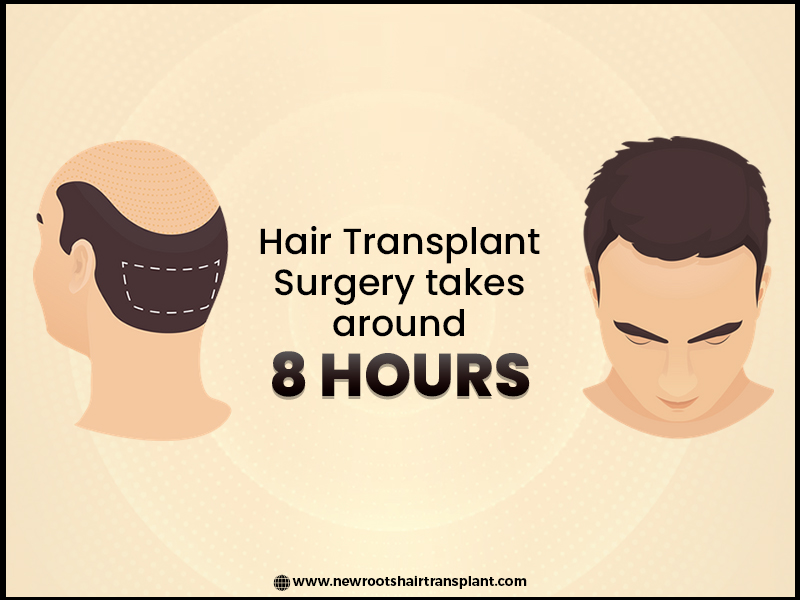
The duration of a hair transplant surgery can vary significantly, depending on several factors :
One of the significant factors that can affect the duration of a hair transplant surgery is the number of grafts required.
A graft is a cluster of hair follicles that are transplanted as a unit.
The higher the number of grafts needed, the longer it will take to complete the procedure.
There are two primary techniques used in hair transplant surgery: Follicular Unit Transplantation (FUT) and Follicular Unit Extraction (FUE).
FUE is a more time-consuming process than FUT, which can affect the duration of the procedure.
The experience of the surgeon can also impact the duration of the surgery.
An experienced surgeon will be able to perform the procedure more efficiently, reducing the duration of the surgery.
The type of anaesthesia used can also impact the duration of the surgery.
Local anaesthesia is often used for hair transplant surgery, which can take a shorter time to wear off compared to general anaesthesia.
On average, a hair transplant surgery can take anywhere from 4 to 8 hours.
However, in some cases, it may take up to 12 hours to complete the procedure.
Read More : HAIR TRANSPLANT COST IN INDIA
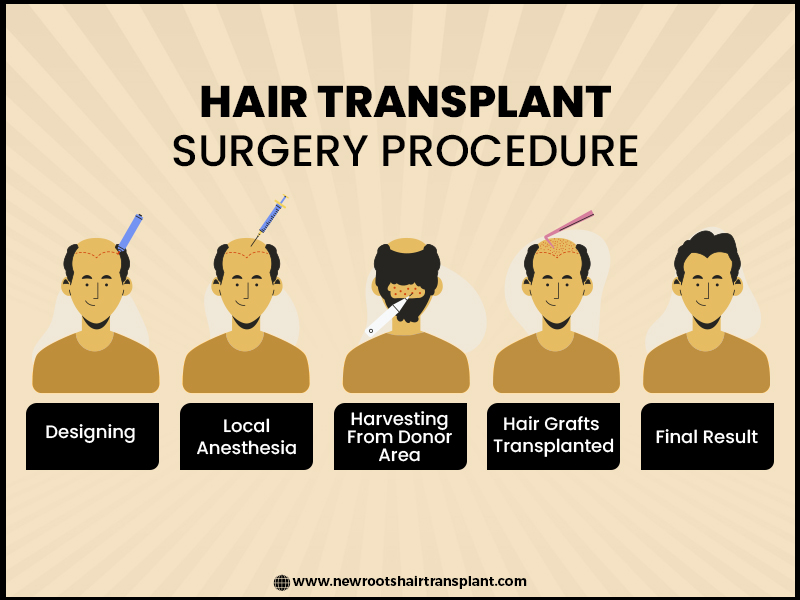
Hair transplant surgery involves several steps:
The first step in a hair transplant surgery involves the removal of donor hair.
The donor hair is typically taken from the back or sides of the scalp, where hair growth is thicker and more robust.
Once the donor hair is removed, the surgeon will extract hair follicles from the donor hair.
This process can be done using either FUT or FUE techniques.
After the hair follicles are extracted, the surgeon will prepare the grafts for transplantation.
The final step in a hair transplant surgery involves the transplantation of the grafts into the recipient site.
The surgeon will carefully place each graft into the balding or thinning area of the scalp.
Read More : DOES WEATHER MATTER FOR HAIR TRANSPLANT IN INDIA ?
After the hair transplant surgery, it is essential to give the scalp time to heal. Recovery time can vary depending on several factors, including:
FUE surgery generally has a faster recovery time than FUT surgery.
The size of the transplanted area can also impact the recovery time. The larger the area, the longer it may take to heal.
The recovery time can also vary from person to person, as someindividuals may heal faster than others.
In general, it is recommended to take at least a week off work after the surgery to allow the scalp to heal. The transplanted hair may fall out after a few weeks, which is normal, and new hair growth should start within a few months.
It is crucial to follow the post-operative care instructions provided by the surgeon to ensure proper healing and the best possible results.
Hair transplant surgery is performed under local anaesthesia, which means that you will not feel any pain during the procedure. However, you may experience some discomfort and soreness in the scalp after the surgery.
You should avoid any strenuous activities for at least a week after the surgery. You can resume normal activities after a few weeks, but you should avoid any activities that may cause trauma to the scalp for at least a month.
In some cases, multiple hair transplant surgeries may be necessary to achieve the desired results.
This will depend on the extent of the hair loss and the amount of donor hair available.
Hair transplant surgery is an effective solution for those experiencing hair loss, but it is important to consider the duration of the surgery, the recovery time, and other factors before deciding to undergo the procedure.
The duration of a hair transplant surgery can vary depending on several factors, including the number of grafts required, the technique used, the experience of the surgeon, and the type of anesthesia used.
It is essential to follow the post-operative care instructions provided by the surgeon to ensure proper healing and the best possible results.